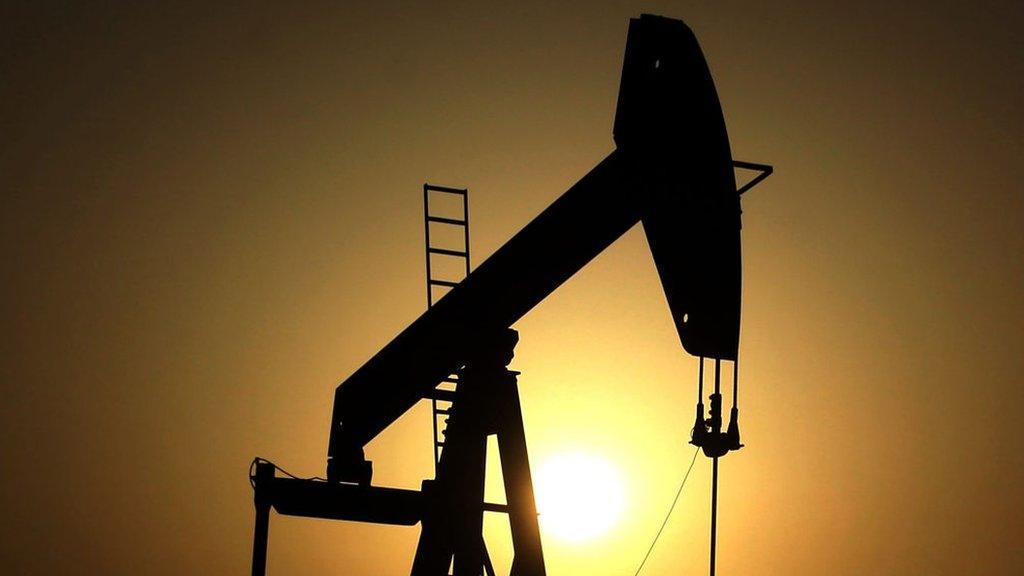Oil prices fall after Opec stocks rise
- Published

Saudi Arabia agreed to cut output by about 500,000 barrels per day in December
Oil prices have fallen after the Opec group of oil producing nations said global crude stocks had risen.
A surprise output jump from its biggest member, Saudi Arabia, put further pressure on prices.
Gains made since Opec announced output cuts late last year have nearly all been erased.
Saudi Arabia said it was "committed" to stabilising the global oil market, and that its output was still in line with its Opec target.
"Despite the supply adjustment, stocks have continued to rise, not just in the US, but also in Europe," Opec said in its report. "Nevertheless, prices have undoubtedly been provided a floor by the production accords."
Saudi Arabia's production increased to 10.011 million barrels per day in February compared with 9.748 million barrels per day in January.
Saudi Arabia "is committed and determined to stabilise the global oil market by working closely with all other participating Opec and non-Opec producers", its energy ministry said.
Oil prices fell after the release of the Opec report to trade close to $50 (£41) a barrel, their lowest since November.
Crude prices are still higher than $40 per barrel a year ago and a 12-year low of about $28 in January 2016.
The price of Brent crude settled about 0.5% down at $51.09 per barrel, while US crude was at $47.90.
- Published27 December 2016

- Published1 December 2016
